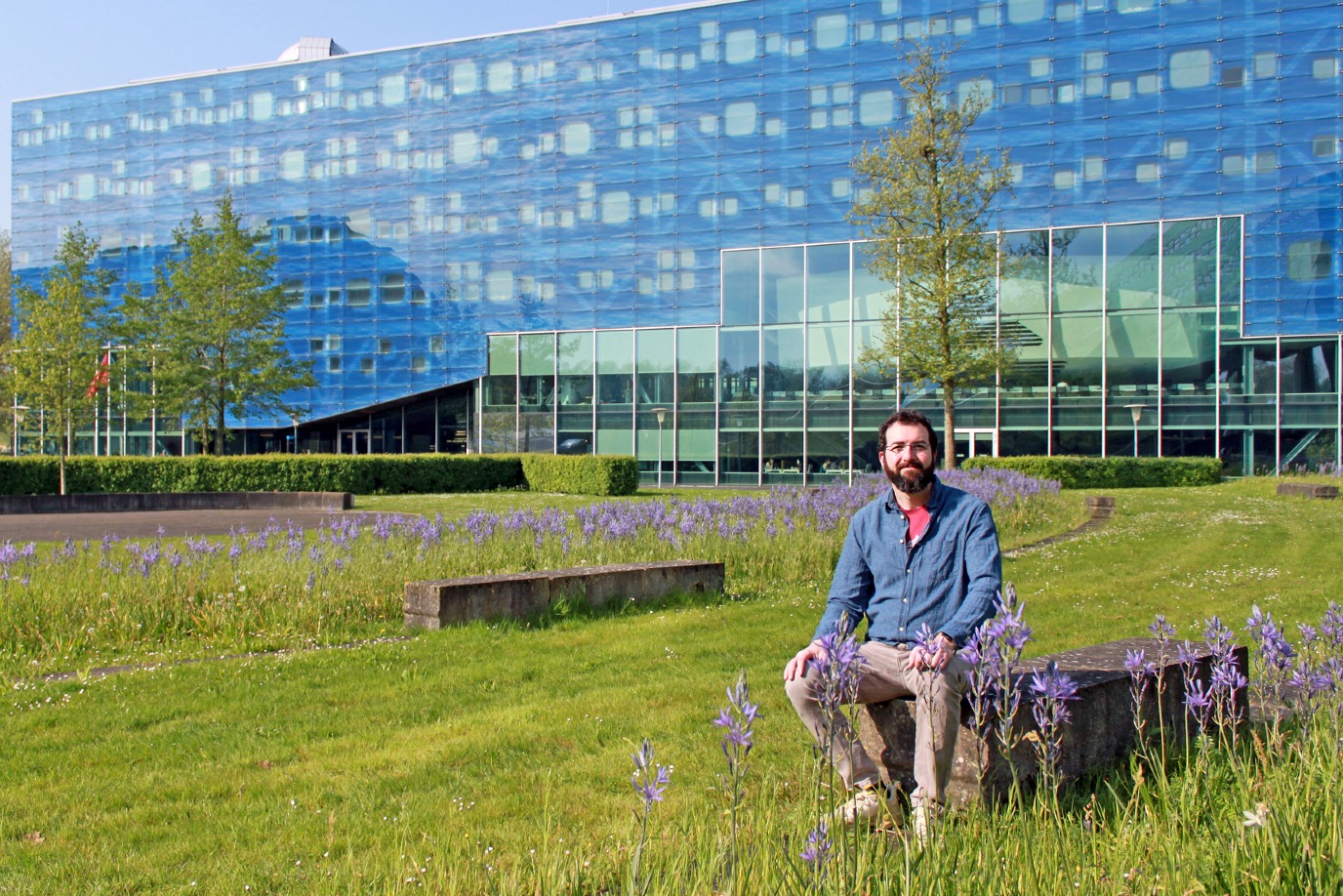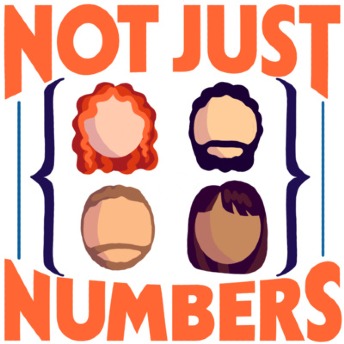In the Spotlight: Marcello Seri

-
Name: Marcello Seri
-
Country of origin: Italy
-
Function at BI: Associate professor within Dynamical Systems, Geometry & Mathematical Physics group (DSGMP)
-
Started working at BI: June 2018
-
Website: https://academic.mseri.me/
Can you remember the first day you walked into the building/institute and what your impression was at that moment?
I do remember the first time. I arrived at the Bernoulliborg for a job interview in October 2017, it was on a Monday, the stairs and all working gadgets looked very futuristic. I immediately felt at home, I found out that a former study friend of mine (and former housemate during my bachelor) was also shortlisted. It was nice to meet up after so long: we went for dinner and attended each other’s seminar.
What motivates you to do your (kind of) work?
I like to learn new things, so that is my primary motivation. I find particularly fascinating to see how different parts of mathematics can work together and can bring new ideas on the table, especially when this happens in unexpected places. This leads me to quite disparate areas of mathematics, even though the methods that I use generally revolve around geometric mechanics and spectral theory.

I have been listening to the Podcast, It’s Not Just Numbers , you set up, what is your goal with these and desired audience?
The podcast is aimed young people interested in knowing what being a mathematician is like, looking at the stats this is the largest part of our audience. The goal is to address some common misconceptions and stereotypes around mathematics by showing the human side of it. In the first half of each episode, we get to know the guests –mathematicians from our institute so far– on a more personal level: their drives, their aspirations, and the other hobbies they have outside mathematics. In the second half, we dive into more mathematics related topics, this varies a lot, but we give away the theme in the episode titles.
Looking at the statistics it seems that we are reaching the expected audience in the Netherlands and abroad – about 30% of our listeners are from other countries in Europe, UK and the Americas.
You are also involved in antohter podcast, does it relate to above?
Indeed, I am also co-hosting the Degrees of Freedom podcast, starting from this year’s season. The two podcasts are not related: Degrees of Freedom was a long running project of Tassos Sarampalis and consists of dialogues with different guests about various theoretical and practical aspects of higher education. I really like that it often brings me out of my comfort zone and gives me a chance to think about topics that I rarely can reflect on.
That takes me to the next question: Of all of your achievements so far, what are you most proud of?
In the non-academic context, it’s the podcast: we had to learn everything from scratch and hope for the best, but in the end, we found lots of support from our colleagues and got a lot of positive responses from the students. It has been really rewarding so far and it was a good excuse to get to know some colleagues better.
Scientifically, I am very proud of the interdisciplinary collaborations we started with Diederik Roest at VSI and Rien van de Weijgaert at Kapteyn institute. In both cases we found a research topic that is really at the intersection of the disciplines. It took quite some effort to start understanding each other, especially for our PhD students, but I have learned a lot and it has been fun to see the mathematics that I do, which is usually quite abstract, being used in a more concrete setting.
Is there anything you want to achieve or establish with your work? (personal, scientific or societal motivation)
Can you state the societal relevance in your research in just a few words?
My research is mostly about curiosity-driven research. The problems I work on from sub-Riemannian geometry are interesting because they are very singular and push much of our theories to its limits, allowing us to better understand those theories and forcing us to think out of the box to figure out new ways to overcome these issues. If you ask me for examples of their application, I will fall short. While there are some common and tangible systems that are described in terms of sub-Riemannian geometry, some classical ones are the motion of a car or a monocycle and the falling-cat problem, what I am mostly interested in is their “quantum” counterpart, for which we don’t yet know if there are physical systems described by the theory. These may come, it’s not unusual in mathematics, but my focus is not there, it is on developing our understanding of these systems and the theory needed to address some of the many open questions that come with them.
When you were a kid, did you already envision yourself doing something like this?
Not really. When I was younger, I wanted to be Indiana Jones and become an archaeologist. However, I found myself more interested in mathematics, (computer) science, physics, and psychology more than history. Only during my last year of high school, I understood that mathematics was really what I wanted to do: our teacher invited a mathematician from the local university to give a talk, I still remember it, it was Fabio Giannoni from the University of Camerino. He gave a talk on the mathematics of gravitational lenses in relativity, appropriately simplified for a class of 17-year-old youngsters. This was so intriguing and fascinating; it was the turning point for me.
What personal detail can you share that people might not know about you?
I am quite open, and I think by now most of them are known either by talking together or from the podcast. Maybe one that is less known is that I like very much to take photos. When I was younger, I used to go hiking with some photographer friends to take pictures of nature, I still have many curated digital albums from that time. Nowadays I do not spend that much time on that hobby anymore, although last year we started exploring the woods around Groningen and we went a few times to take photos of mushrooms and mosses.
What do you like and dislike about Dutchies/ Groningen/The Netherlands?
I find Groningen to be a very family friendly and green city, I really like that. I also like that you can go everywhere by bike, although I also dislike that: learning how to bike within the city centre has been quite a challenge. I would not dare to take my car into the city centre!
What Kerstin said in her interview also resonated well with my experience, Dutch people praise a lot the flat hierarchy, were everybody is on the same level, but in practice that does not seem to be always the case.
Is there anything that was organized at your previous job/institute that might be a good suggestion for our institute?
In my previous institutes, PhD students and Postdocs were invited to participate by attending meetings more often, being informed when hiring was taking place and asked for feedback and invited to all social activities. I do miss that a bit within the group/institute. On the other hand, here we have initiatives like the Young Academy Groningen (YAG) and Young Science and Engineering Network (YSEN), that hold many open events for the staff and have been very helpful for me to get in touch with colleagues and learn how the university works.
Besides that, I saw you are a board member in the European Woman in Mathematics Netherlands (EWM-NL).
Yes, at the last NMC they were looking for a new board member to help with the website and it was something where I felt I could help. I think having a voice in support to diversity is a shared responsibility, and when we met, we felt it would also be useful of have also male allies in the organization, which ultimately led me to join.
Interested and want to know more?
Marcello’s office is 484 or visit his personal website . On the other hand, listen to the kick-off of the Podcast series .
Interviewer: Ineke Schelhaas
